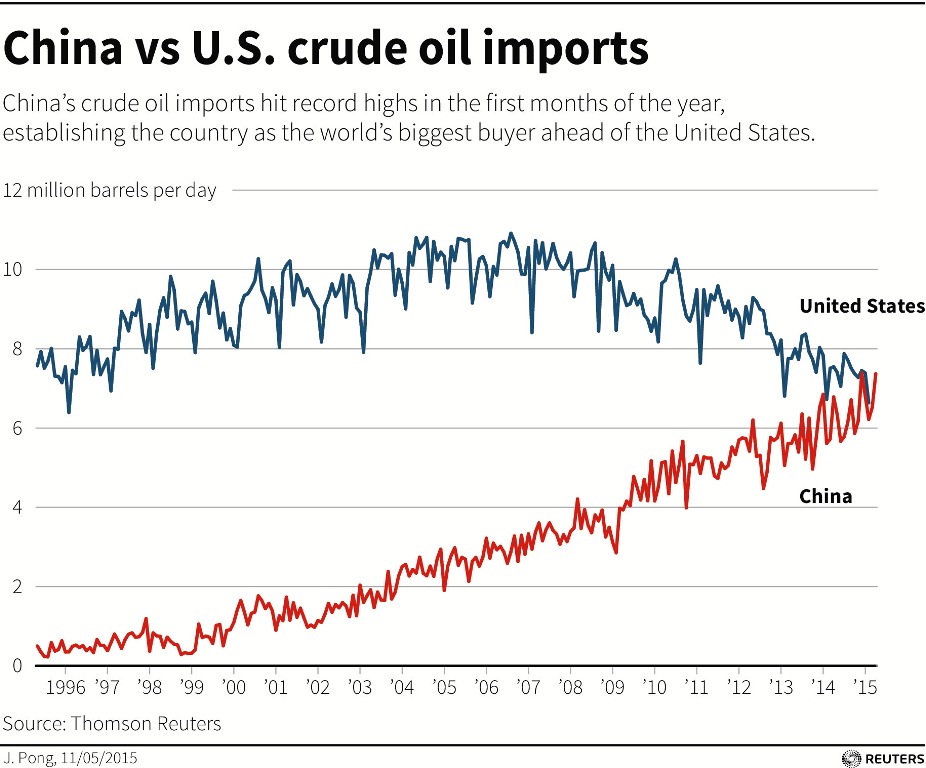....and pockets the difference. Not to mention the additional taxes imposed in recent months.
Tq Saudi Arabia for the free cash.
http://www.bloomberg.com/news/articles/2016-01-18/oil-prices-stopped-falling-at-40-a-barrel-for-chinese-consumers
Tq Saudi Arabia for the free cash.

http://www.bloomberg.com/news/articles/2016-01-18/oil-prices-stopped-falling-at-40-a-barrel-for-chinese-consumers
For consumers in China, the benefit of oil’s crash stops at $40 a barrel.
That’s because the retail price of fuels such as gasoline won’t be cut in line with crude as long as it trades below that level, according to the country’s top economic planner. The policy is aimed at curbing consumption, cutting pollution and securing supply, the National Development and Reform Commission said when it unveiled the plan last week.
.........
The NDRC said the floor is also designed in part to shield oil drillers and producers from the global price collapse. The average cost of oil production globally is about $40, where China has built the price floor, the NDRC said. Costs are slightly higher in China because of the generally lower quality of the country’s oil resources, NDRC said.
The country produced about 4.3 million barrels a day in the first 11 months of last year, up 2 percent from the same period the year before. Output in November fell 0.5 percent, the first decline since April 2014.
“Although a lower crude price largely benefits the Chinese economy, it would damage domestic oil producers’ ability to maintain relatively stable domestic production,” Moody’s Investors Service said in a Jan. 18 report.
That’s because the retail price of fuels such as gasoline won’t be cut in line with crude as long as it trades below that level, according to the country’s top economic planner. The policy is aimed at curbing consumption, cutting pollution and securing supply, the National Development and Reform Commission said when it unveiled the plan last week.
.........
The NDRC said the floor is also designed in part to shield oil drillers and producers from the global price collapse. The average cost of oil production globally is about $40, where China has built the price floor, the NDRC said. Costs are slightly higher in China because of the generally lower quality of the country’s oil resources, NDRC said.
The country produced about 4.3 million barrels a day in the first 11 months of last year, up 2 percent from the same period the year before. Output in November fell 0.5 percent, the first decline since April 2014.
“Although a lower crude price largely benefits the Chinese economy, it would damage domestic oil producers’ ability to maintain relatively stable domestic production,” Moody’s Investors Service said in a Jan. 18 report.




Comment